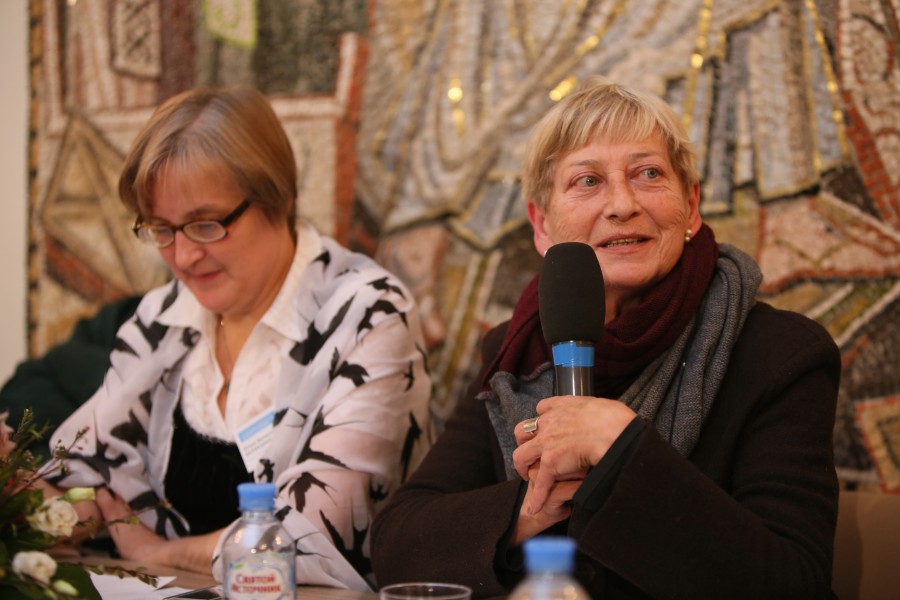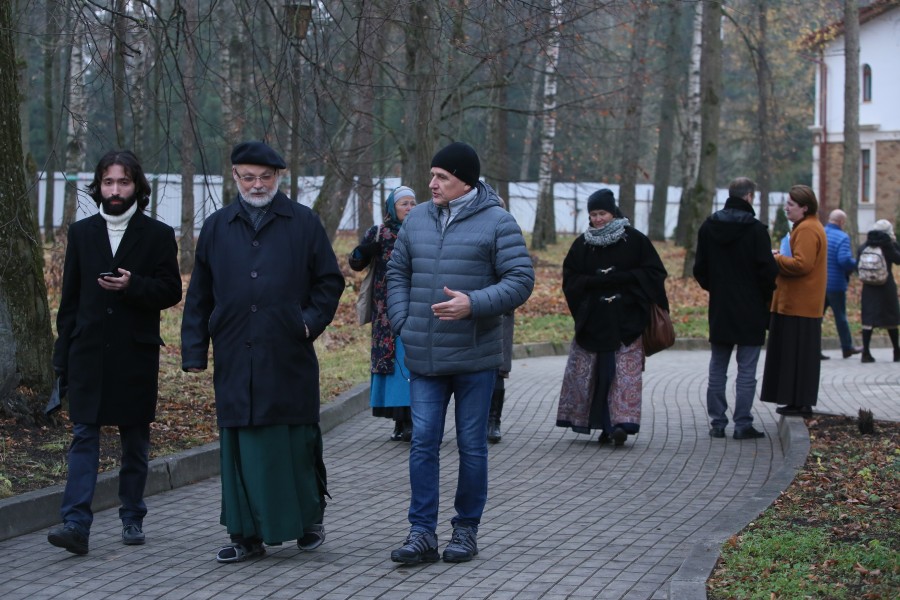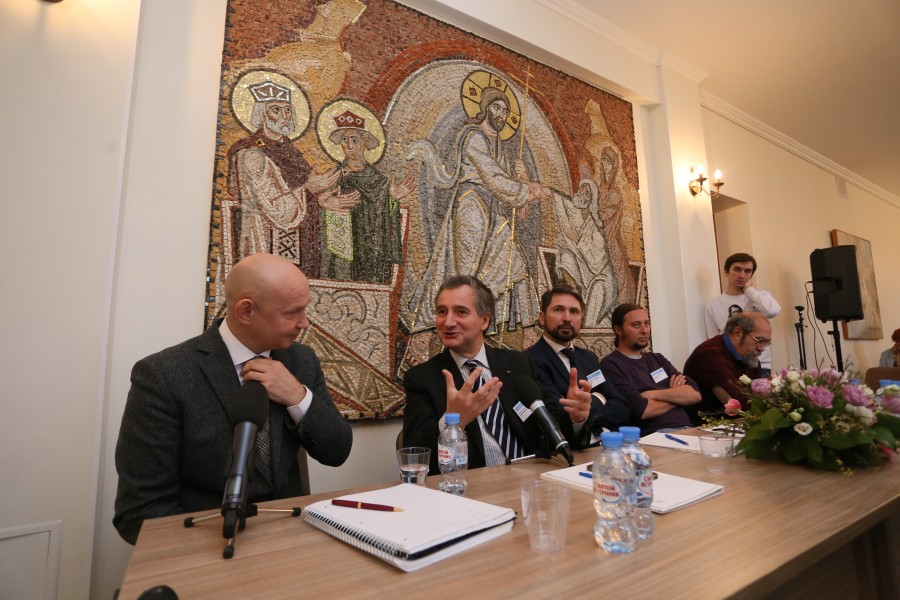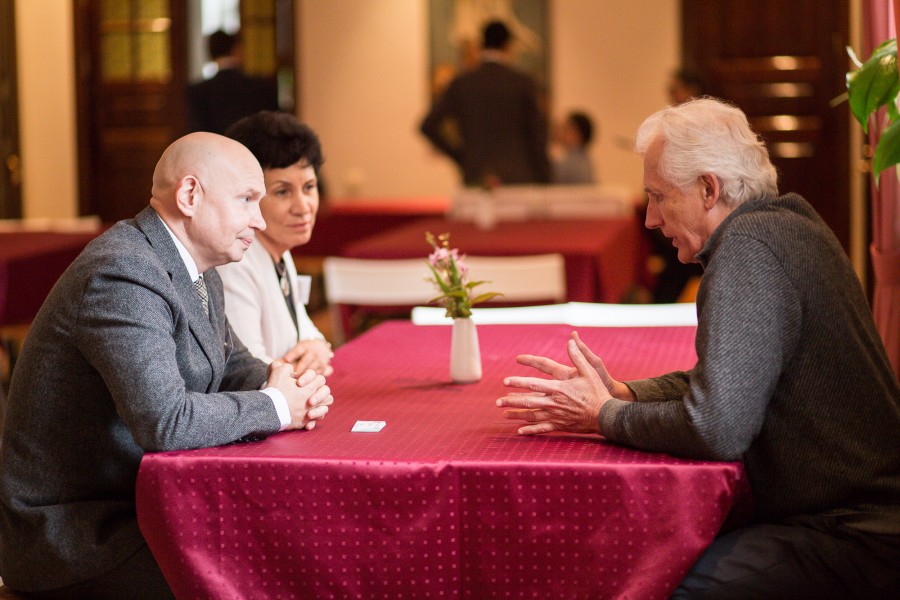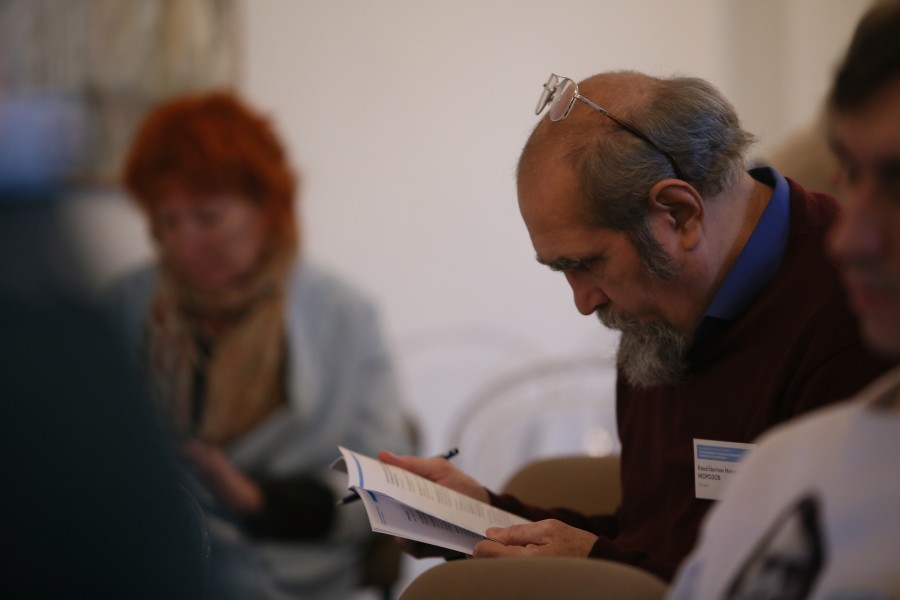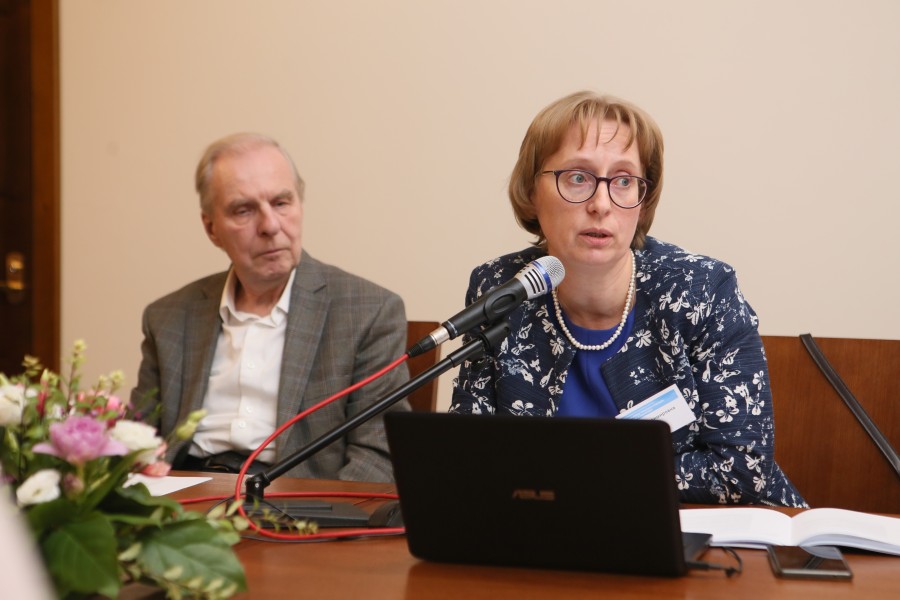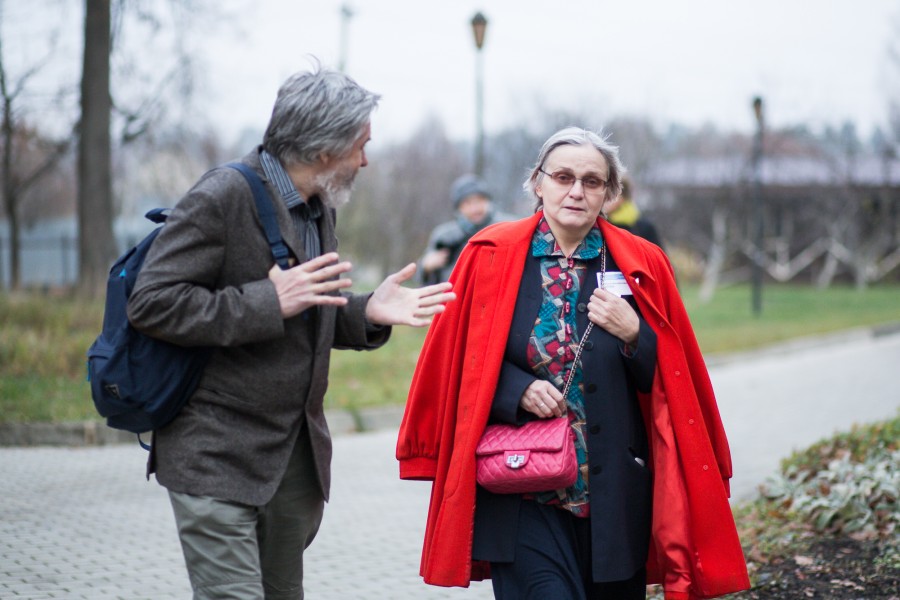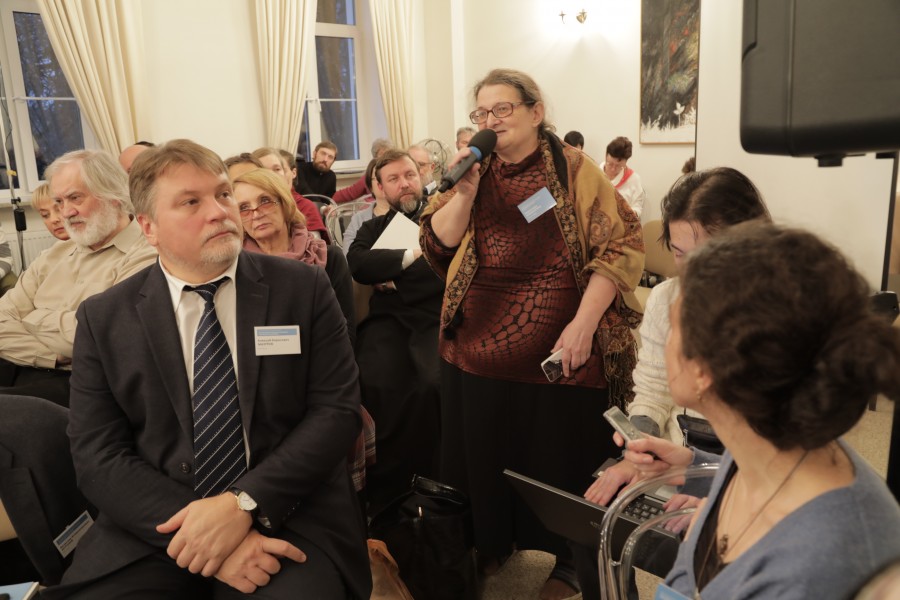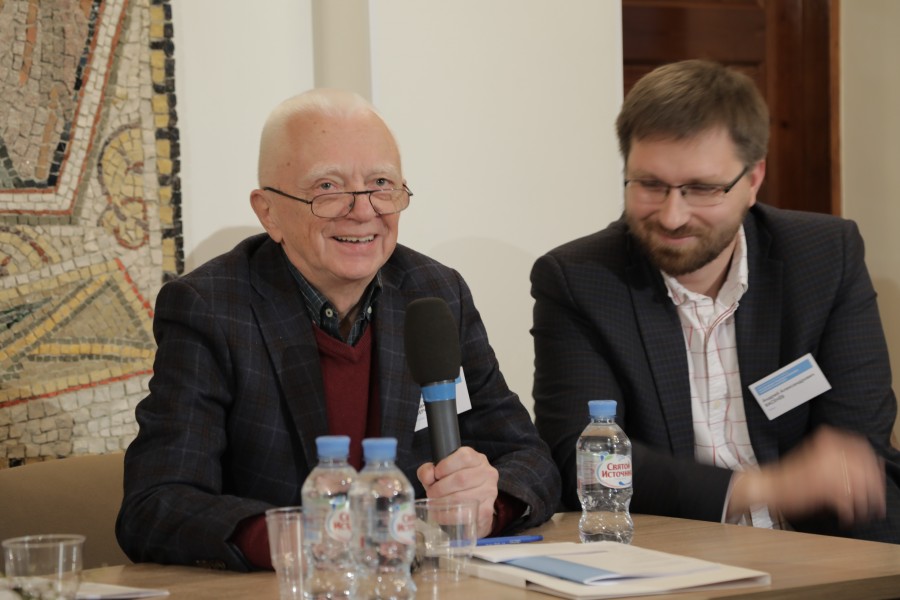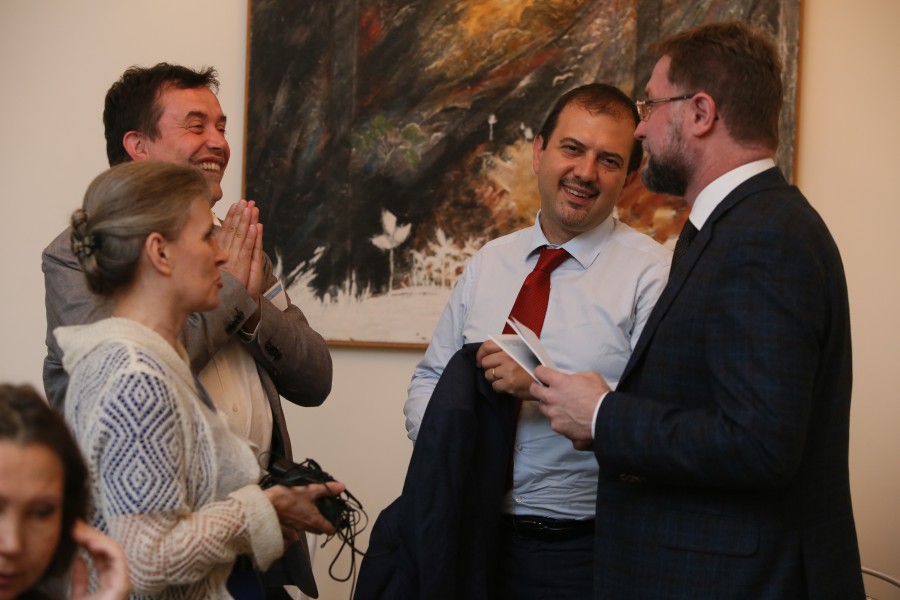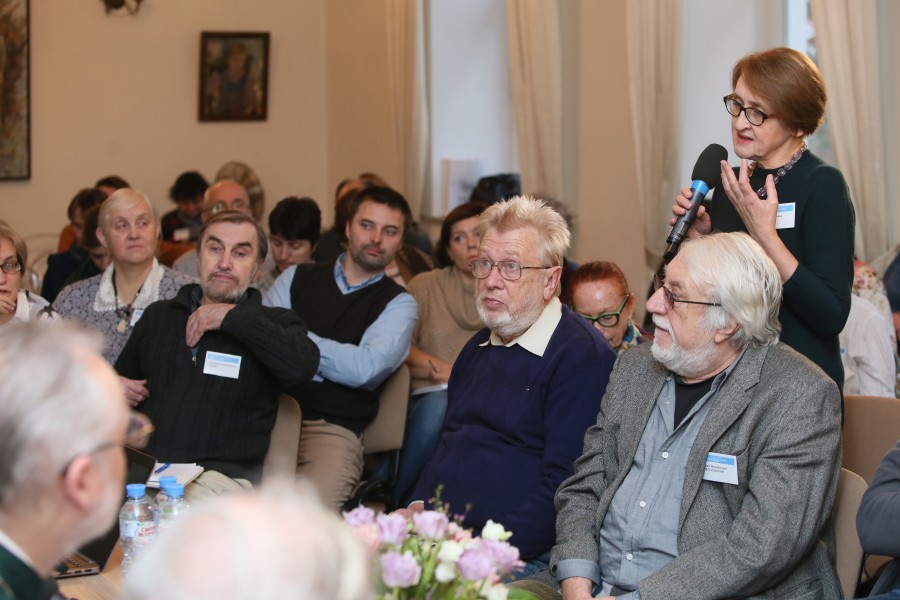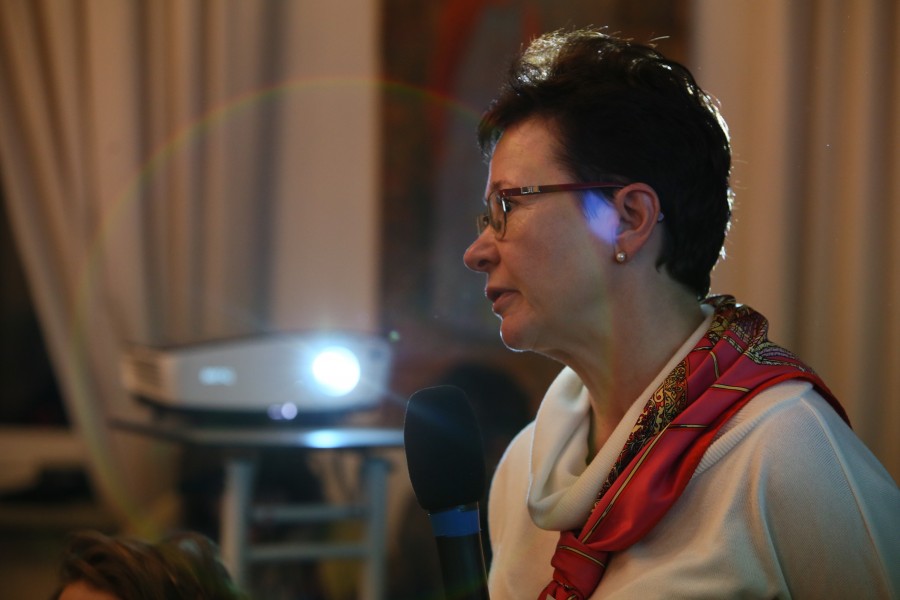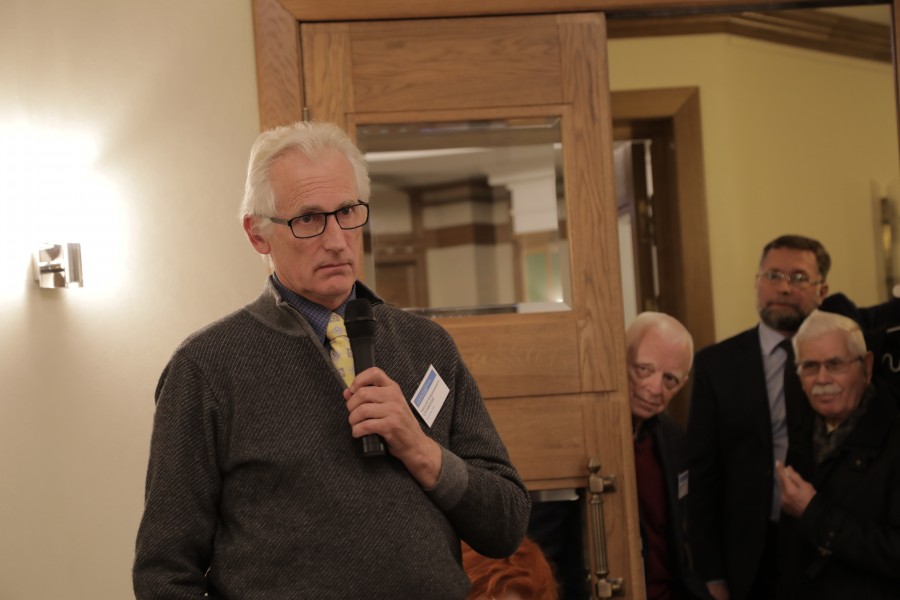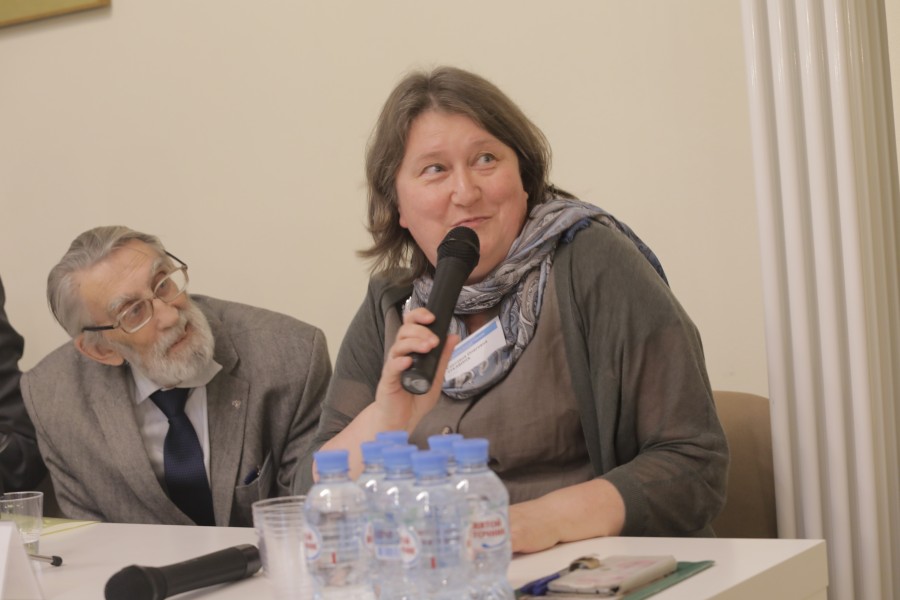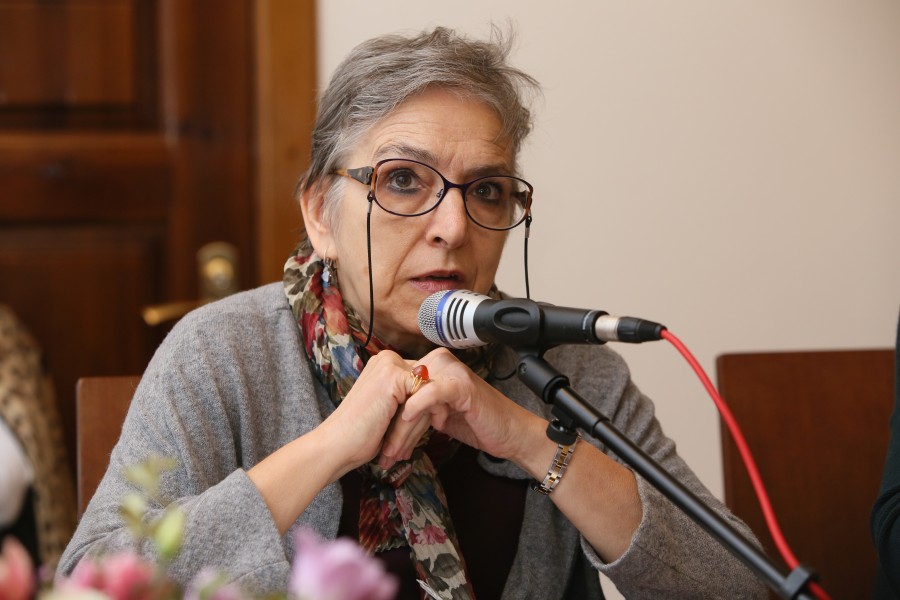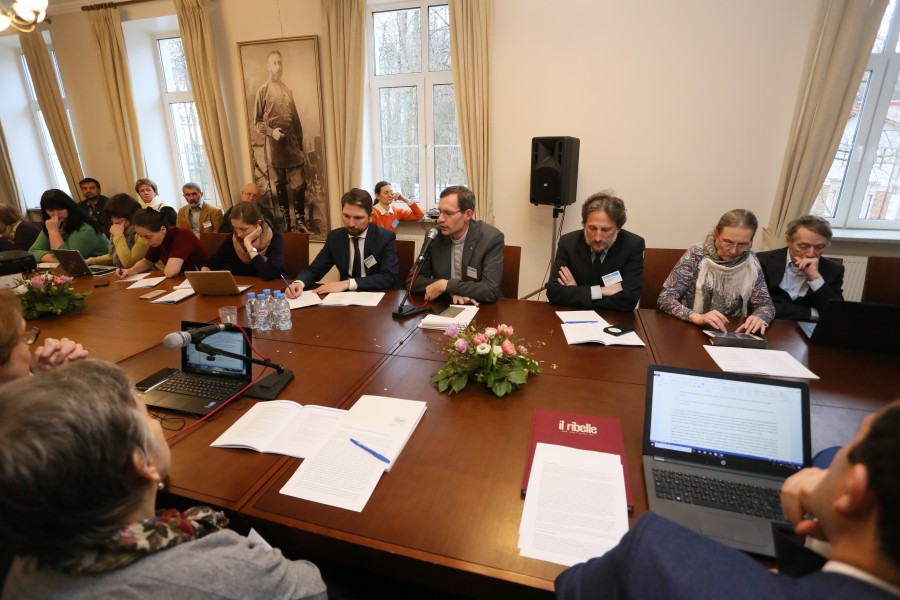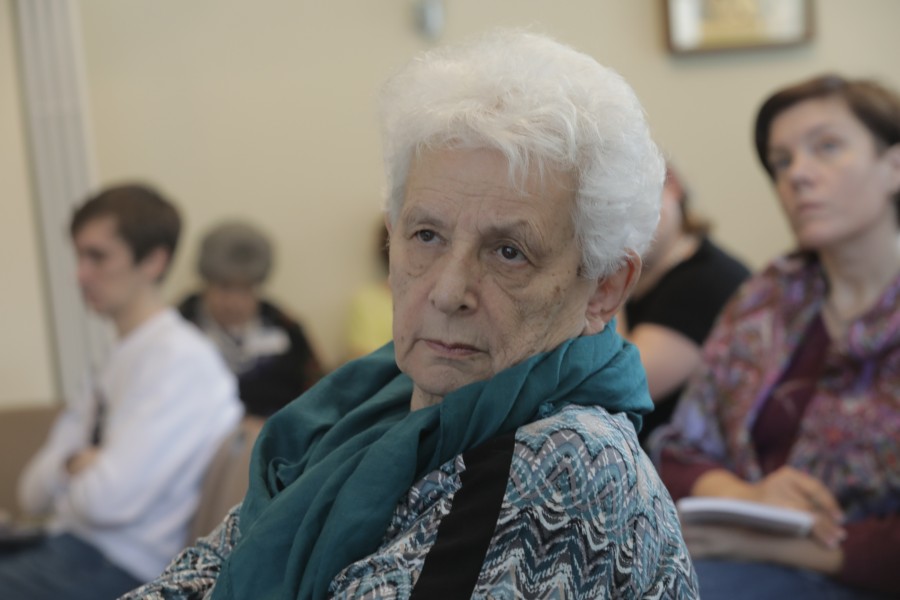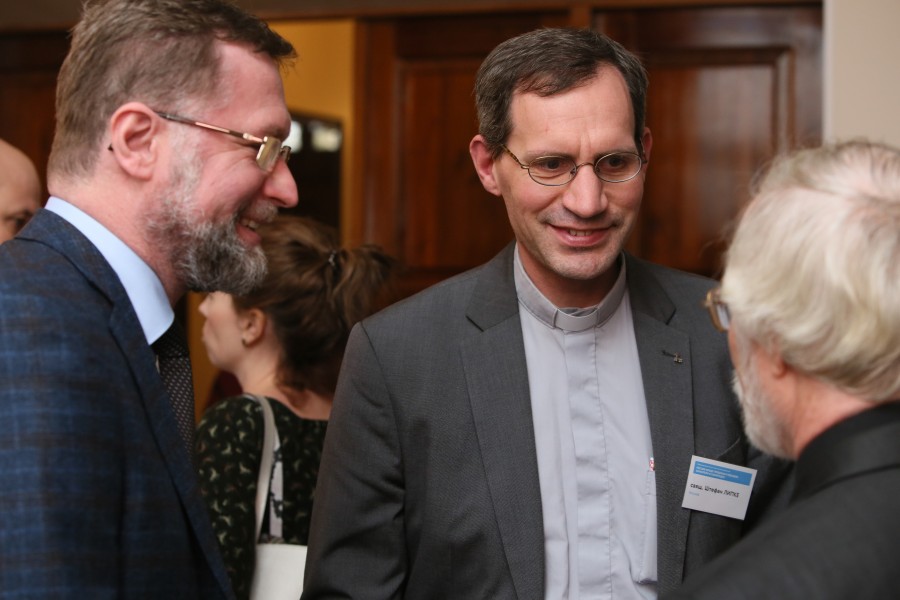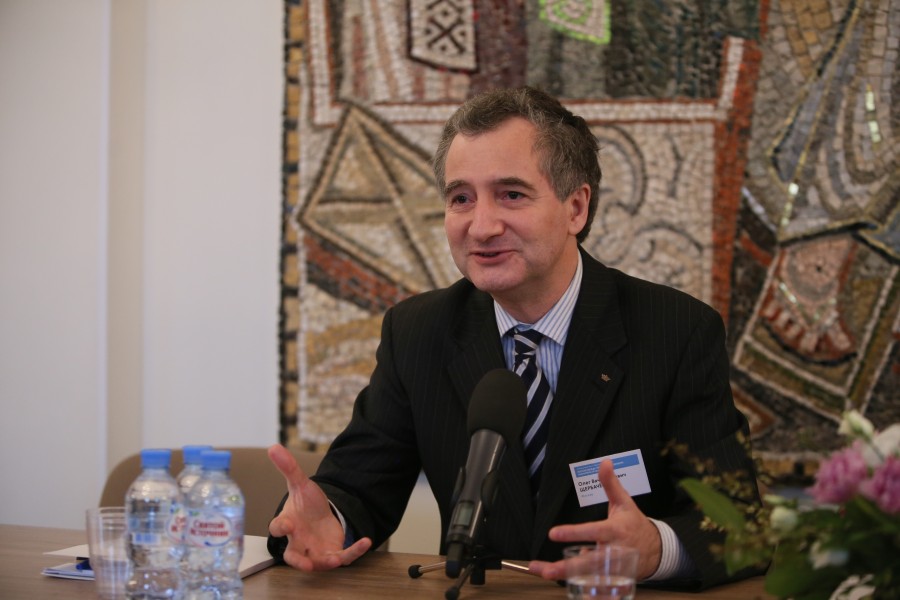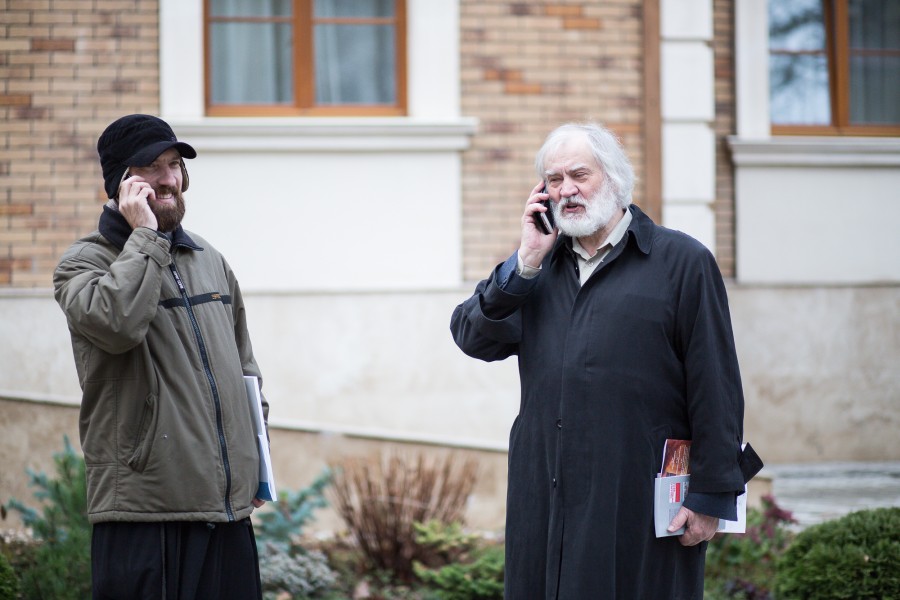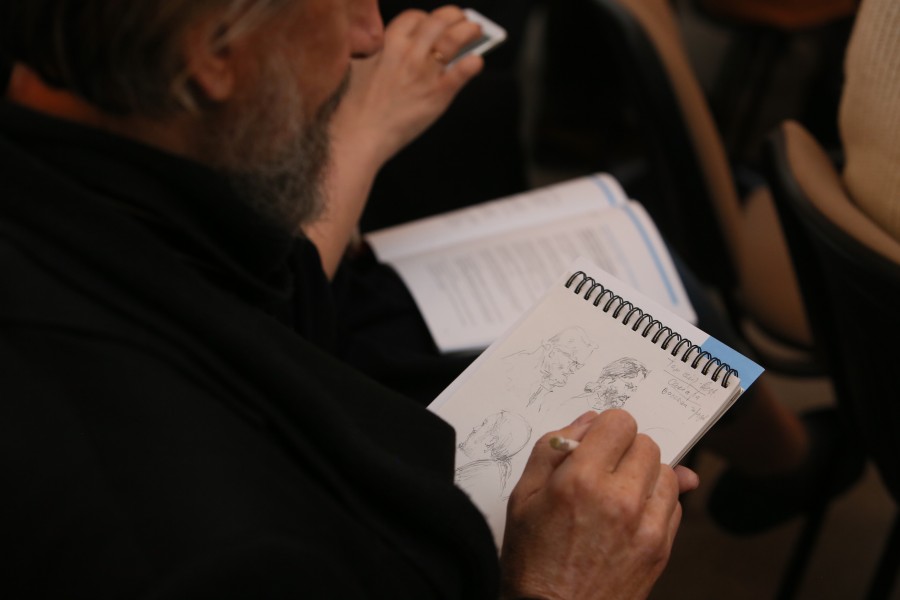“The Place I’m Returning to…”
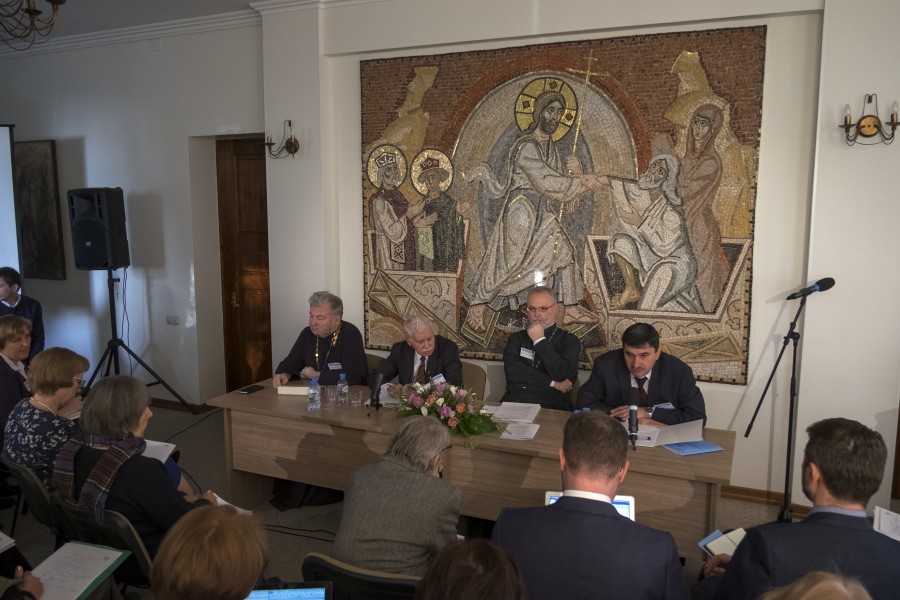
“Russian bureaucrats ask me why I don’t take Russian citizenship. But why should I take a Russian passport when my grandfather was thrown out of Russia?”, asks Sergei Samygin. “And why even ask, when the decrees of Lenin and Stalin, by which our citizenship was taken from us, haven’t been overturned? I don’t understand how we became foreigners in our own country. Never in Russian history was there ever a case when Russia turned away her own sons.”
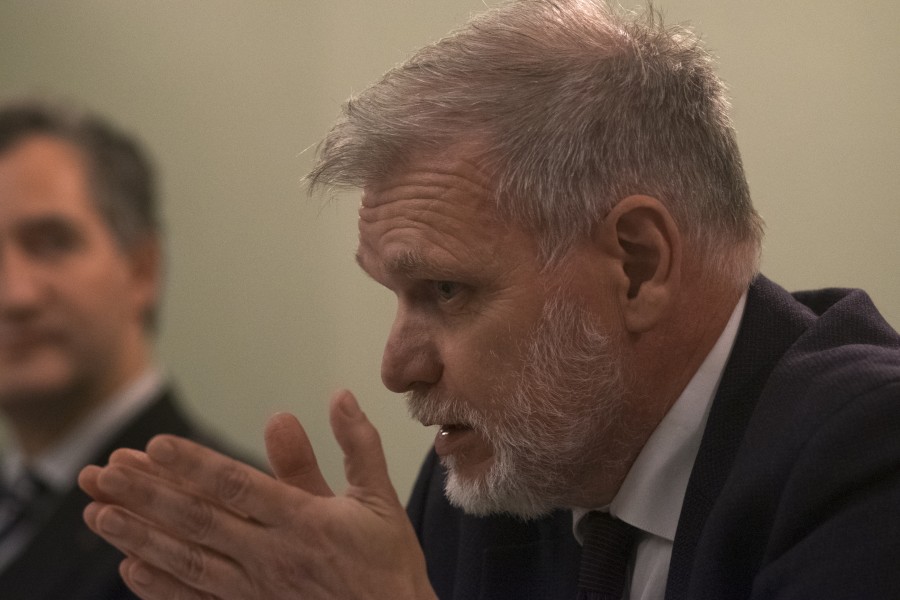
Sergei Mikhailovich Samygin is a descendant of the princely Meshchyorsky family, exiled by Soviet authorities after the coup in October 1917. He and his family returned to their homeland more than 30 years ago, and associate Russia with their future and the future of their children. But it is as if Russia itself hasn’t made up its mind who belongs and who doesn’t. Many Russian citizens don’t express any feeling as regards the many old estates that lie in ruins, the cemeteries covered in asphalt or the churches destroyed by dynamite…and don’t even experience discomfort when they go into former houses, stolen from the owners, which are now museums and public buildings. Our compatriots calmly look on all this stolen property, taken by force accompanied by murder, as if it were just culturally significant objects of art. They aren’t bothered that they live on streets that bear the names of the murderers and oppressors. And, for all this, they don’t feel themselves to be foreigners, even when they find no problem with taking permanent residence in other countries where there situation is more favourable.
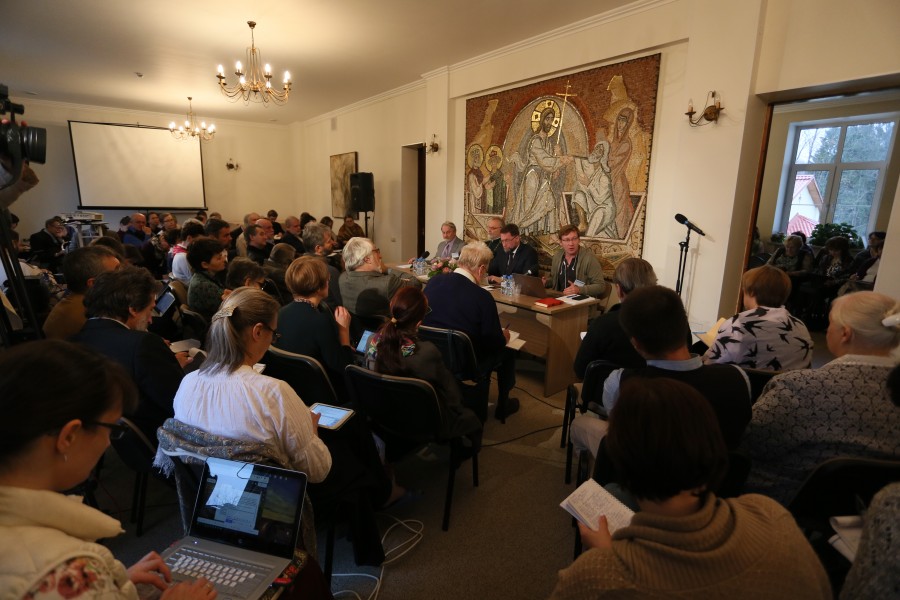
“The indifference of people nowadays to what happened in 1917 is caused by the fact that they don’t understand that our modern worldview bears the imprint of those events, and has been completely ‘Sovietized’,” says Fr. Alexander Lavrin. “History somehow ended up outside of us.”
“There is no better word than ‘catastrophe”, to describe what happened in 1917. This word encompasses the crime, the suffering, the demographic destruction, and even something cosmic, accomplished not by man alone,” says poet Olga Sedakova. “But those times aren’t over yet. We speak as if we are living after the catastrophe, though in fact we are still living inside it.”
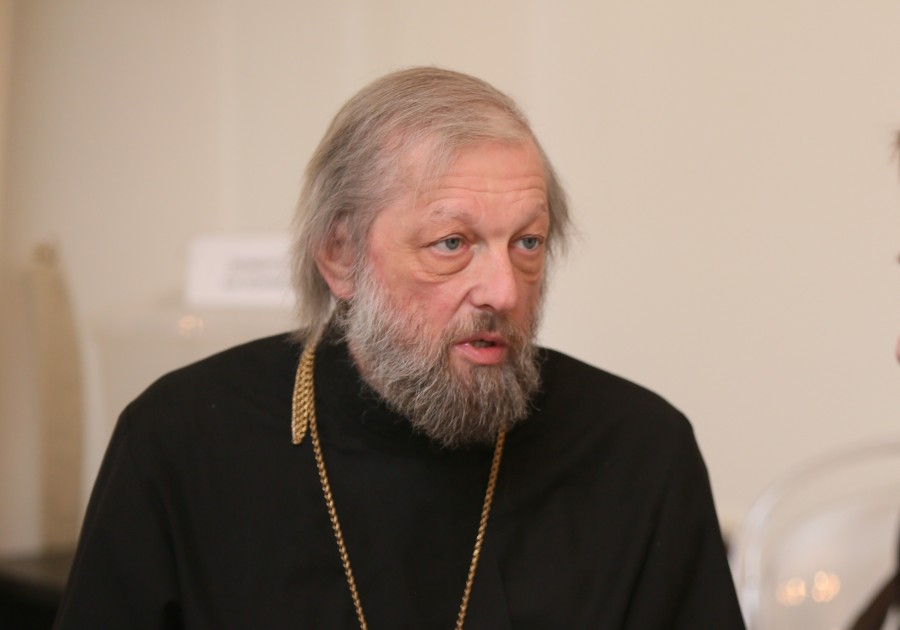
Awakening
The tragedy of the 20th century is still very much our unconscious present and, first and foremost, we are still captives of its fears, its idols, and its malevolent ideas. But during that whole time, and to this day, there exist those who preserved the old Russia, its traditions, its culture, its faith – and those, who still want to live in that Russia. These are the people we endeavoured to bring together at the recent conference on Russia between the Past and the Future: Guardians and Trailblazers, which was held at the Transfiguration Cultural Centre from the 6th to the 8th of November, 2018.
“At first, we spent a lot of time thinking about architecture, but then began to realise that we need to move on to focussing on the people who want to live in these houses, care for them and preserve their memory,” says Andrey Kochetkov, founder of the Tom Sawyer Fest volunteer movement, which restores decrepit manor houses. Tom Sawyer started off with the idea of simply repainting three buildings in the centre of Samara, with the goal of attracting attention to the problem of preserving our historic environment. We wanted to send a message to the people of the city: ‘Look at how beautiful these buildings can be if we take the time to care about looking after them!’ And then our festival started to travel around the country, by 2018 touching 26 different cities and even one rural village.”
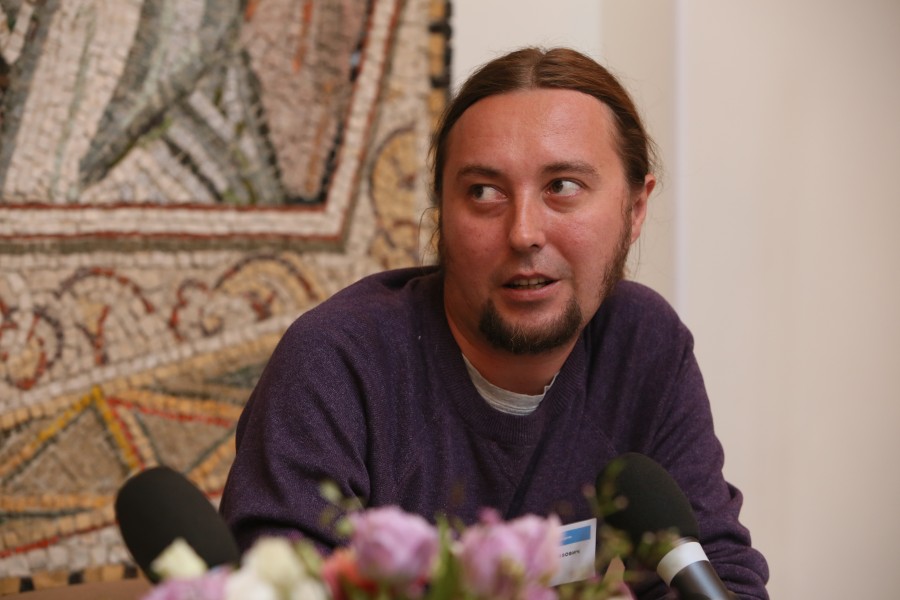
Among the conference participants was the great grandson of Pyotr Stolypin, Nikolay Sluchevsky, a student of Merab Mamardashvili, Tatiana Panchenko, and other students, descendants and spiritual children of various Russia scholars, philosophers and saints, as well as representatives of various associations dedicated to preserving the history of the Russian people and land. These included the Guardian Publishing House of the State Hermitage, the Syrene religious music ensemble, the Assembly of Russian Nobility, and Bessmertny Polk (Immortal Regiment), which is a movement dedicated to the preservation of the personal memory of the Great War generation.
“Immortal Regiment is, first a foremost, a story of personal memory. Via its website, we assist people in their searches for family members. In this way, people and generations come together,” says Co-Chairman of the organization, Sergei Lapenkov. “For us, this is more important the parade on the 9th of May. [Translators note: 9 May is when VE Day is celebrated in Russia, as the treaty was signed on the 9th, local time]. Those who are successful in locating family members through the site are automatically rerouted to the Immortal Barracks site, a non-profit project aimed at the preservation of memory of victims of the Soviet repression.”
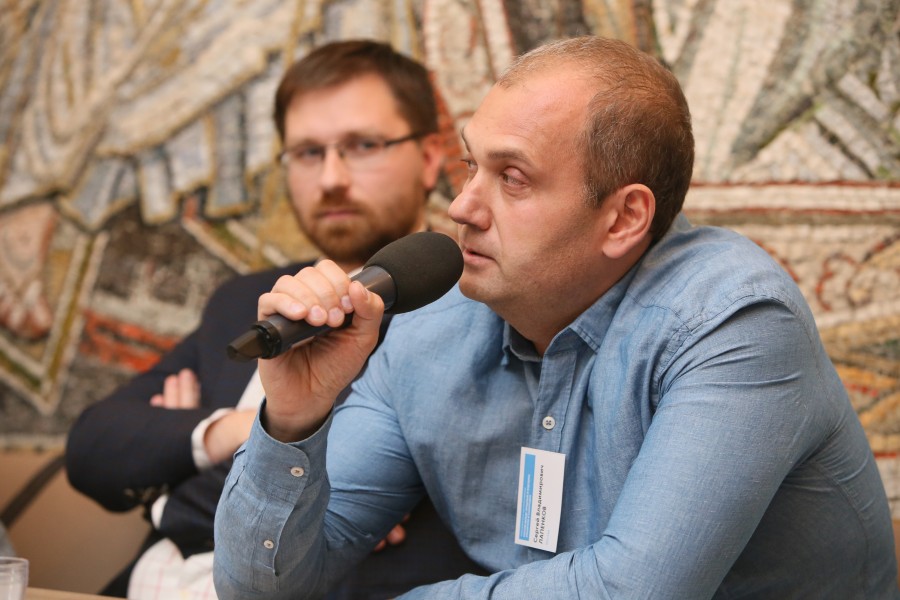
These nascent initiatives not only aid in the preservation of our cultural and historical inheritance: a particular imperative arises within those who conscientiously set the tone for our time, and they experience an awakening of the spiritual principle within themselves. “At present I don’t see any cultural initiatives which amaze in terms of their innovative nature or scale,” says Olga Sedakova, “but a certain goodness is appearing, and from this desire to do good, a new, creative culture should emerge, presenting an alternative to the global humanitarian trend and disposition.”
The conscience-based decisions of particular people become an “agent of change”, and a meaningful factor for societal consolidation. Here and there, alternatives to the prevailing consumerist, individualist logic – according to which we evaluate neighbours based on how “useful, profitable, comfortable, or safe” they are to us as individuals. Groups are appearing, which have come together not along political, economic, aesthetic, corporate or some other conventional lines.
Are these people going to become the “leaven” for a new elite? Are they the embryonic form of a new nation and people? “We are accustomed to only a very rare use of the word “elite” in the description of societal processes, and the word itself continues to bear the connotational stamp of contempt and ill-will,” says Vyacheslav Igrunov, Director of the International Institute for Research in Politics and the Humanities. “For this reason, even posing the question about the formation of a national elite can be risky and problematic, and is possible only in a certain crowd – amongst people who are ready to invest this concept with positive meaning.”
Someone needs to pay attention to the question of who we are and from where we come…and then answer this question not only with some sort of opinion, but by striving himself to become the answer to the question.
Who are we and where do we come from?
In Russian history, it was the Slavophiles who most succinctly posed this question of who we are, what our particular gifts are, and what our calling is. Better than others, they understood that a nation and a society isn’t something that has always been there across the centuries and will last forever. “Society arises “now”, in our own understanding and self-awareness, and is a nation consisting of many human persons, conscious of themselves as a whole in relationship with each other.” So says Andrey Teslya, a student (researcher) of History and the Slavophile idea, and Senior Lecturer at Immanuel Kant Baltic Federal University, in Kaliningrad.
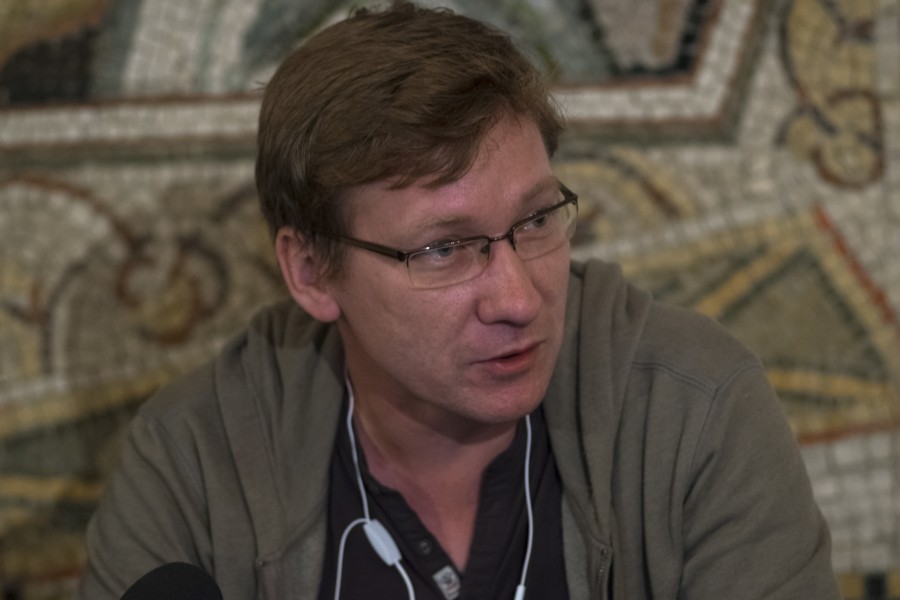
Whether we are heirs of the Russian people, Russia itself, or the Soviets and the Soviet Union, is one of the principle questions which we need to answer. “Boris Yeltsin admitted that for him this was a hard question,” says publicist Sergei Bychkov, “and in the end he came to the conclusion that the Russian Federation was the heiress of the Soviet Union.”
In many ways, the failure of de-communization that took place in the 1990s was a foregone conclusion. “Among the people in power, there were none who thought of our country as an heiress of the historical Russia,” says Sergei Volkov, Head of the Biographical Institute of the University of Dmitry Pozharsky (in Moscow). “This path, envisaging a right of inheritance from pre-Revolutionary Russia, wasn’t pushed by the elites. And the self-remade Soviet nomenclature and so-called “democratic forces” had, in the 1990s, a vested interest in the suppression of any anti-Soviet and anti-Communist impulses.”
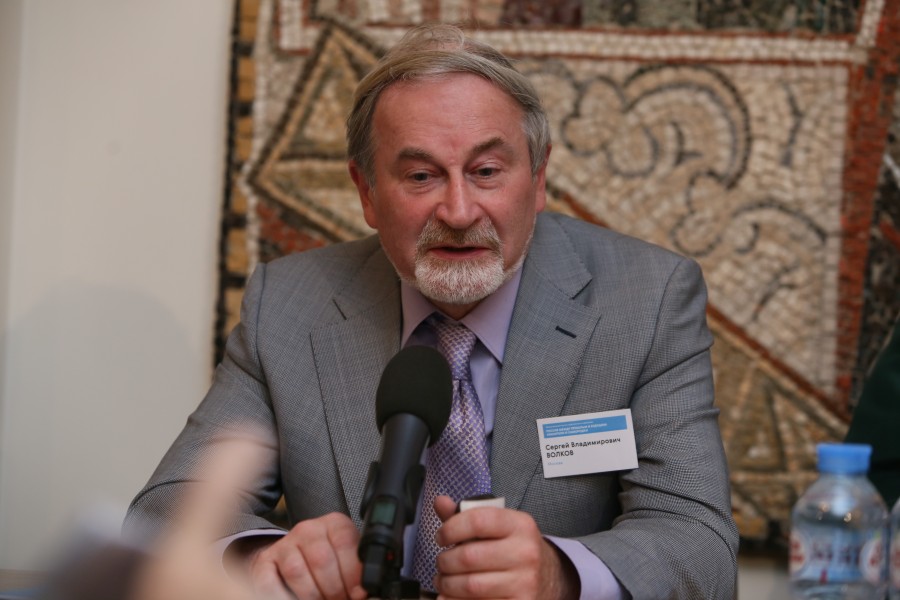
The national principle of the Russian people was weak and, among those in power, all but annihilated over the course of the 20th century. “The Revolution itself bore an anti-Russian character: Russia herself was envisaged by the Bolsheviks as no more than fuel for the fire of world-wide revolution,” says Alexey Mazurov, Rector of the State Institute for the Humanities and Social Studies (in Kolomna), “and, for this reason, the Russian people/nation suffered more than anyone else.” Evaluating the demographic results of Bolshevik politics over the first half of the 20th c., scholars estimate the losses to be between 50 and 65 million people, the majority of whom were Russian.”
“After all these years of living in Russia, I still feel myself to be an immigrant,” admits Sergei Samygin. Up to a certain point people consider us Russian, but then it turns out that we are foreigners. Living abroad, we are Russian Americans or Russian French. We’re consolidated. Here in Russia, we don’t know who we are speaking with – with Russians, or with citizens of the Russian Federation. There are some important principle which divide us.”
That Russia is splitting in two, can be felt not only by repatriots, but also by those who never left. “Sometimes you experience an unbelievably heavy sensation of humiliation as, in looking around you, you sometimes notice ugliness upon a background of beauty, and at other times the remnants of beauty on a landscape of ugliness,” says Dmitry Gasak, Chairman of the Transfiguration Brotherhood. “And the paradoxical nature of our mission is that we must love this demolished and defaced land of ours, which is nevertheless so dear to us.”
Courts and Justice
In the opinion of conference participant Igor Chubais, in order to be freed of its Soviet inheritance once and for all, Russia needs its own “Nurnberg Trials”. But who should we invite to hold court over us, or who amongst those living here now doesn’t have a part, via his forefathers, in the discord, dissention and evil that took place? The court which tried Nazi Germany was headed by representatives of other sovereign states and, when evaluated as a seat of justice, it is not altogether unimpeachable. It seems that Germany’s true repentance began only in the 1960s, as the fruit of colossal efforts on the part of various churches, as well as of various spiritual and societal movements.
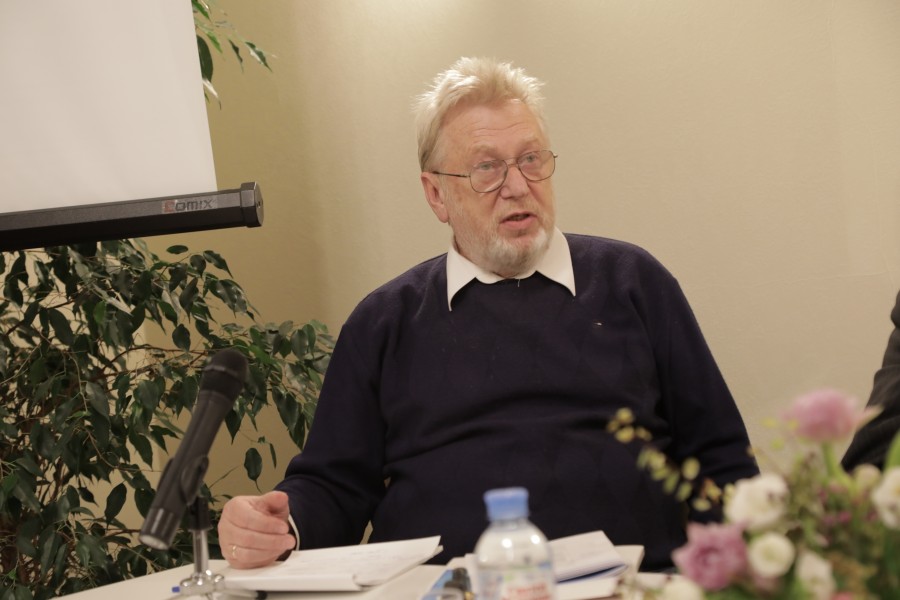
St. Philaret’s Rector, Fr. Georgy Kochetkov, is certain that the restoration of quality and meaning in our personal lives and the life of our nation is simply impossible without de-communization. Furthermore, a change in ideology or party affiliation does not qualify as de-communization. As the experience of governments all across the former Eastern Bloc shows, even a very deliberate will to recant of the symbols of Soviet times – including the passage of particular laws, the removal of monuments and the renaming of streets – doesn’t lead to the rebirth of a nation, until such time as it also bears within itself the impulse toward national repentance. On the contrary, without repentance, such policies turn into nothing more that laying the blame for your own poverty (in all senses) upon others.
“It is hardly a coincidence that one of the first heralds of the fall of Soviet Power was Tengiz Abuladze’s film Repentance,” Sergei Khouzhij, a Professor in Philosophy at the Russian Academy of Sciences, reminds us. “This film was an endeavour to restore a Christian consciousness to the nation. Society, however, very quickly rejected the idea of repentance, and we have seen the resulting catastrophe: instead of repentance, society has regressed to anti-ethics. After the Stalinist terror, when force and hate retreated to the periphery, the longest-lasting properties of Soviet man became falsehood and hypocrisy.”
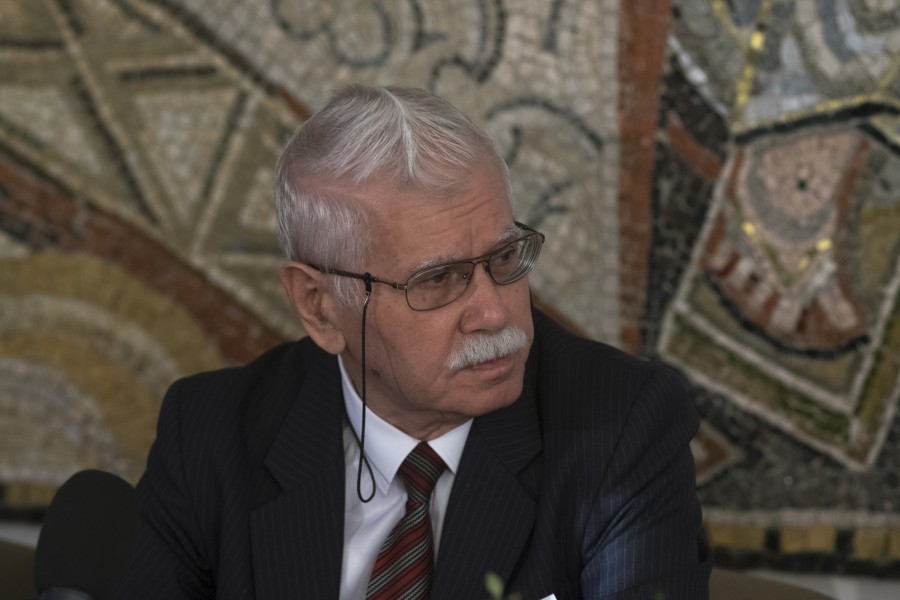
The Russian church, which should have been the first to take on the work of repentance, had itself been destroyed by Soviet power and existed only as an unrecognizable trace of its former self. As for Orthodox tradition, in its Soviet recension mercy was replaced by severity, humility with willing abasement, the aspiration to give, with begging, faithfulness to God with faithfulness to the party and government, and the prophetic principle with false prophecy. Mother Maria Skobtsova foresaw this rending of the very fabric of the church, says SFI teacher Lydia Kroshkina: “After the fall of communism, the church will be infected by dogmatism and a non-antithetical mindset, which will lead to a craze for heretical thinking and the persecution of all those who insist upon freedom within the church.” Mother Maria saw faith in action as an escape from this trap, if initiated by church volunteers, “who will at minimum be ready to leave their beloved homes, typical lives, and even callings – as soldiers do when they go to war. And the fate of humankind depends on the efforts and degree of sacrifice of these people.”
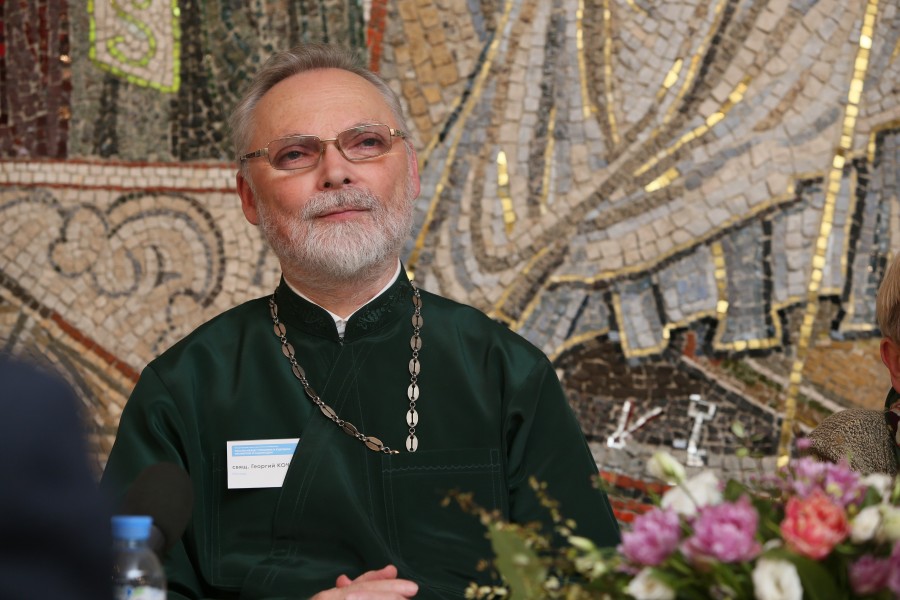
“We ourselves must learn to hold fast to the best within the spiritual foundations of the Russian people, and these are Christianity and Orthodoxy in its highest sense,” says Fr. Georgy. “Christianity which respects individuality, the self-presentation and the deep inner person of every human being – a Christianity which is personal and “soborno” –[Translator’s note: “soborno”, means marked by a deep inner integrity of each community member with the community as a whole]. We need, once again, to become a part of Europe and the rest of the world, and Europe and the rest of the world must become a part of us. Russian religious philosopher Vladimir Solovyov’s question is directed squarely at us, today:
O Rus! Your foresight heavenly
To prideful thought enticed;
Which East is your Identity:
Of Xerxes, or of Christ?
The Conference Russia between the Past and the Future: Guardians and Trailblazers, was organized by the Transfiguration Brotherhood, St. Philaret’s Orthodox Christian Institute, and the Assembly of Russian Nobility. Over the course of three days, 236 people from 33 cities across Russia, Moldavia, Belarus, the Netherlands, Latvia, Italy, Sweden and the US, took part.
Conference participants included representatives of:
St. Philaret’s Institute
The Russian Christian Academy for the Humanitites
The European University
The Institute of St. Thomas
Moscow State University
Russian State University for the Humanities
Russian Presidential Academy of National Economy and Public Administration
Lomonosov Northern (Arctic) Federal University
The Academy of Sciences
The Centre for Philosophy and History of Science at Boston University
The State Hermitage
Anna Akhmatova Museum
The History Museum of the Karl May School
The Residence-Museum of Sergei Durylin
The Museum of Modern Calligraphy
Tom Sawyer Fest (movement for the restoration of urban historic environments)
The Immortal Regiment Historical-Patriotic Movement
The Moscow Merchants Society
The Stolypin Centre for Regional Development
Usadba “Podvyze” and “Istoki”
The Associations of Italian Christian Workers (ACLI)
…and others.
The Conference is part of the Those who have Hope Forum for National Repentance and Rebirth.
Sofia Androsenko, Oleg Glagolev
Photo: Alexander Volkov, Kirill Mozgov, Alexandra Strotseva, Andrey Vasenev
